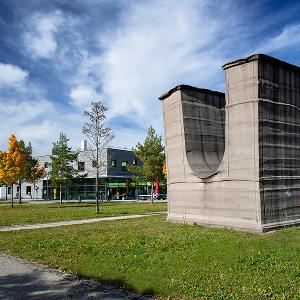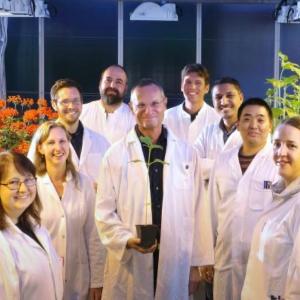
Aktuelles
Verpassen Sie nichts – News und Events der Fakultät
Aktuelle Veranstaltungen
-
 12 JanEES Seminar Series
12 JanEES Seminar SeriesJörg Beckmann - New roles for modern zoos: research, conservation, and more
-
 15 JanSpecial ! EES Seminar Series
15 JanSpecial ! EES Seminar SeriesDetlev Arendt - Mapping multi-modal single-cell atlases to an electron microscopy volume for an entire animal
-
 19 JanEES Seminar Series
19 JanEES Seminar SeriesAntonella Soro - The role of plasticity in the evolution of eusociality: lessons from the halictid bees
Aktuelle News
-
 Pflanzenforscher machen die Photosynthese fit für den Klimawandel
Pflanzenforscher machen die Photosynthese fit für den KlimawandelEU fördert das Projekt mit 7,5 Millionen Euro.
-
 Nasales Mikrobiom: Ressourcenknappheit als Chance
Nasales Mikrobiom: Ressourcenknappheit als ChancePotenziell gefährliche Staphylokokken konkurrieren in der menschlichen Nasenhöhle mit anderen Bakterien um Biotin. Das könnte ein neuer Ansatzpunkt im Kampf gegen die Keime sein.
-
 Magnetsinn: Tauben nehmen Magnetfelder über ihr Innenohr wahr
Magnetsinn: Tauben nehmen Magnetfelder über ihr Innenohr wahrNeurobiologen der LMU haben einen neuronalen Signalweg identifiziert, der für die Verarbeitung magnetischer Informationen aus dem Innenohr zuständig ist.



